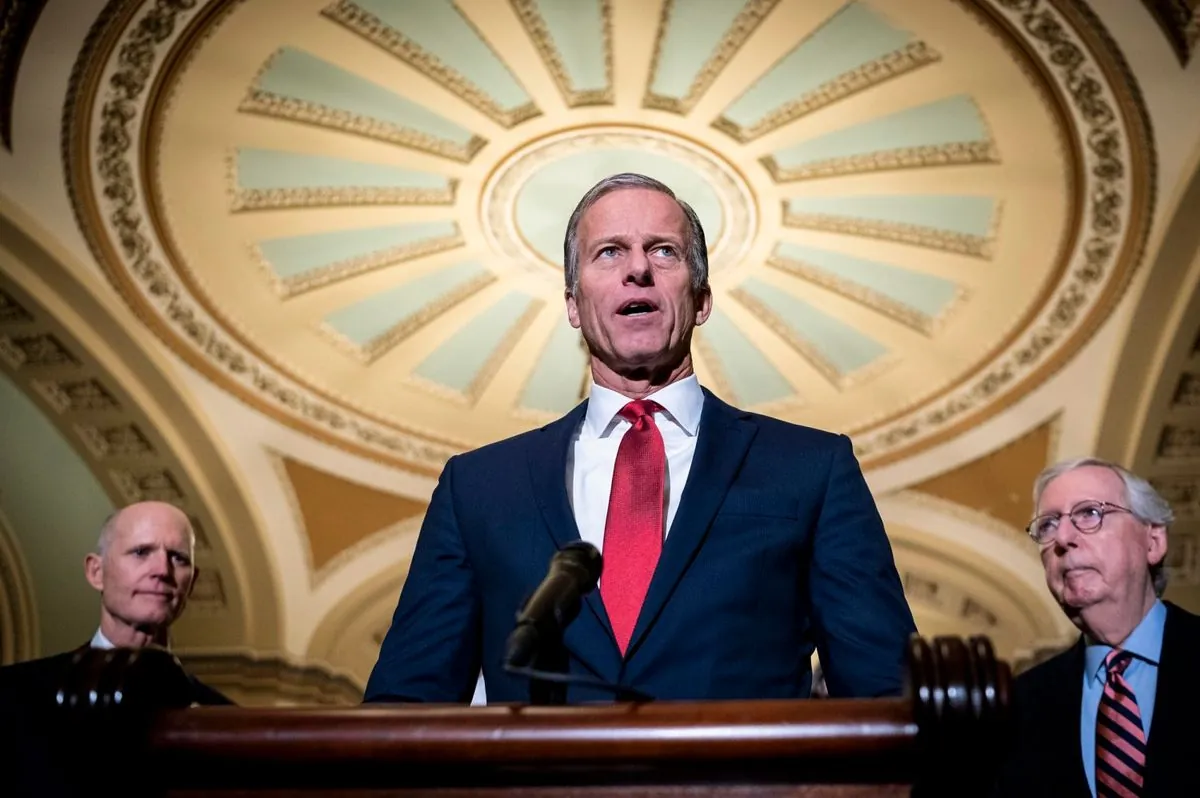John Thune, the 63-year-old senator from South Dakota, is making a bid for Senate Republican leadership, marking a significant moment in his political career. Born on January 7, 1961, in the small town of Murdo, Thune's journey from rural America to the halls of power in Washington D.C. reflects the changing landscape of the Republican Party.
Thune's political aspirations have led him to seek the position of Senate Republican leader, with the secret ballot expected after the November 2024 election. This move comes as Mitch McConnell prepares to end his tenure as the longest-serving Senate leader in history.
The senator's path to this point has been marked by both triumphs and challenges. After graduating from Biola University in 1983, Thune began his political career working as a legislative assistant for Senator James Abdnor. His rise through the ranks of South Dakota politics included roles such as the state's Republican Party Executive Director and Railroad Director.
Thune's Senate career began in 2004 when he defeated incumbent Tom Daschle. Since then, he has been re-elected three times, most recently in 2022. His conservative voting record and advocacy for issues such as ethanol and renewable fuels have solidified his position within the party.
The senator's relationship with former President Donald Trump has been complex. In late 2020, Thune criticized Trump's efforts to overturn the election results. This led to Trump unsuccessfully attempting to recruit a primary challenger against Thune in 2022. Despite this, Thune has recently visited Mar-a-Lago and endorsed Trump for president, indicating a pragmatic approach to party unity.
"I think he understands where I'm coming from, so we'll see what happens."
Thune's leadership style, shaped by his small-town upbringing and athletic background, emphasizes teamwork and perseverance. His experience as Republican Whip from 2019 to 2023 and his work on various Senate committees have prepared him for this leadership bid.
As the Republican Party navigates its post-McConnell era, Thune's candidacy represents a test of whether a leader with traditional conservative values can succeed in the current political climate. The outcome of this leadership race will undoubtedly have significant implications for the future direction of the GOP in the Senate.
